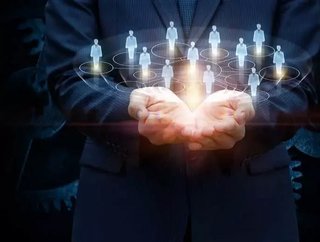AI will not take our jobs, but it will fundamentally change them

The rise of AI has prompted an open discussion on the merits and morals of this technology, ranging from unequivocal acceptance to knee-jerk paranoia, but it seems that common sense has yet to enter the debate. That AI will massively affect our working lives in the not-too-distant future is not up for debate - but, contrary to what certain tech execs might have us believe, this is not a cause for concern if we prepare ourselves properly, as only humans can.
The reason AI will help us is the same reason it will not take all our jobs - because computers don’t, and can’t, think like us. Artificially intelligent programmes rely heavily on back-propagation, an algorithmic technique that uses acquired knowledge to solve problems based on previous experience - but it also has to start learning from scratch when asked to pick up a bottle instead of a cup.
See also:
The human skills of reasoning, generalisation, and intuition will never be adequately replicated by a piece of code, but that is all the more reason to hone these skills and use AI for its intended purpose - dealing with mundane, complicated processes so humans don’t have to.
Changing the way we think about working now is crucial so that we can take advantage of AI in future, and to ensure that the work we do is in harmony with AI, not in competition with it.
Working with AI
The traditional way of working, whereby managers make decisions and employees do as they are told, creates a process-driven workforce that is not able (or allowed) to see the interaction between these processes - exactly like an AI programme. In my company, Pod Group, we saw the need to adapt to a future where AI will be able to handle any process a hundred times better than we can, and so changed our whole organizational structure to emphasize those attributes that set us above computers.
Our WEIRD strategy is built around the attributes of Wisdom, Emotional Intelligence, Initiative, Responsibility and Development, and sets out to have everyone take ownership of their own actions and feel confident about this ownership. With the assumption that everyone is capable, that we should enjoy our time at work, and that value is created by maximising what we can do collectively, lots of interesting things happen.
Oddly enough, if you let people choose how to do their work, they actually want to do it. Because we should enjoy working, people can choose where they work, and when to take a holiday. Because all information about the company is transparent and available - including salaries decided by each individual - every project can be completed knowing all of the relevant information, including costs and returns.
Creating an environment where employees are free and encouraged to make their own decisions (about their work, pertinent financial decisions, and the future of their company), allows a sense of personal ownership and leadership to develop. Work then becomes focused on the ongoing productivity of the company, not the task at hand, and a workplace able to embrace AI is born.
AI working for us
This way of thinking - of managing processes rather than mindlessly ‘doing my job’ - will become key to survival in a future jobs market dominated by AI. Humans will never be able to compete with AI if we continue to promote extreme specialisation in a complex set of processes, with little focus on the bigger picture. What will help humans take full advantage of AI, however, are those WEIRD attributes that lead us to truly innovative ideas.
The human ability to extrapolate and generalise should be celebrated in our work and used to harness the ability of AI to take care of any process that does not require the emotional intelligence and reasoning of a human.
In the words of the Ex-Chairman of General Electric, Jack Welch: ‘Change before you have to.’
Charles Towers-Clark, CEO, Pod Group
- OpenText’s Muhi Majzoub: Engineering Platform Growth with AIEnterprise IT
- OpenText CEO Roundtable: The Future of Safe Enterprise AIDigital Transformation
- OpenText AI: Empowering Businesses in Information ManagementDigital Transformation
- Microsoft in Japan: $2.9bn Investment to Boost AI & CloudCloud & Cybersecurity






